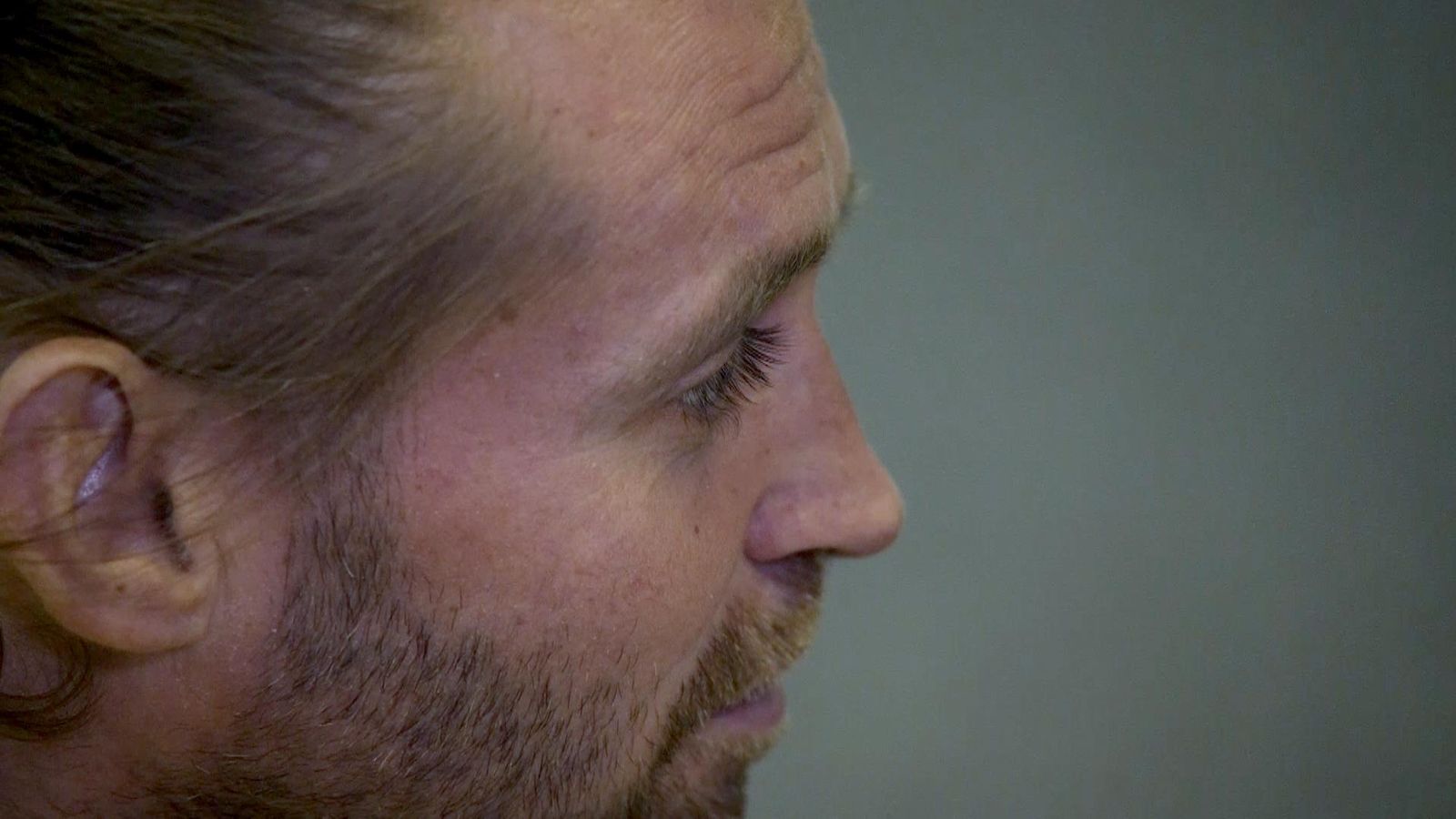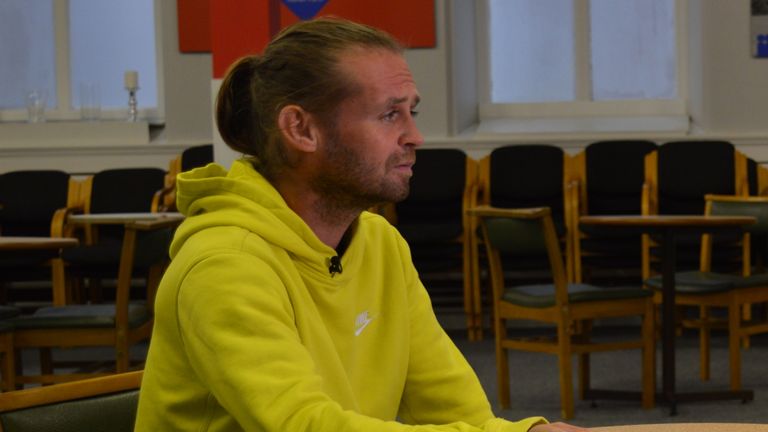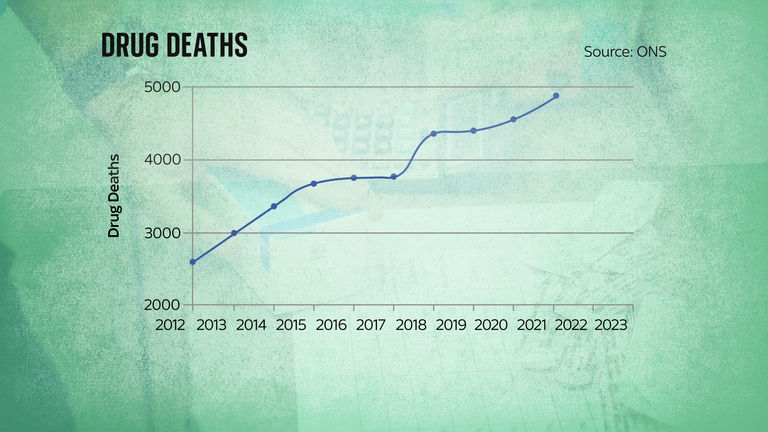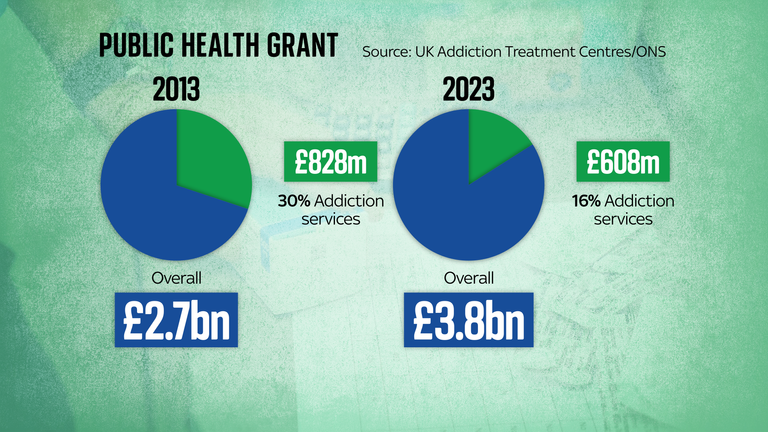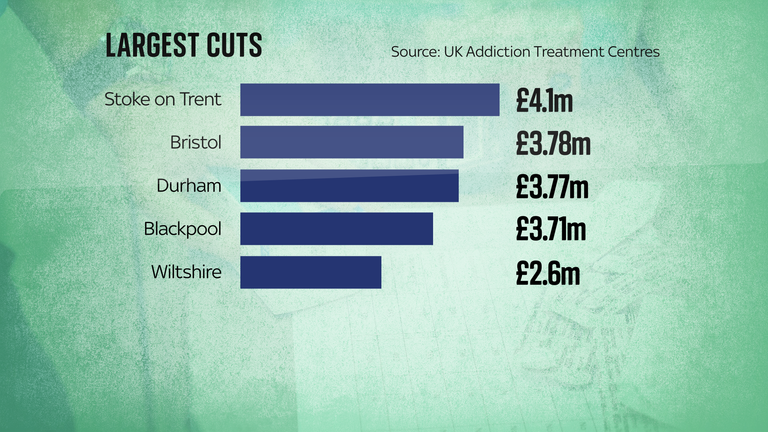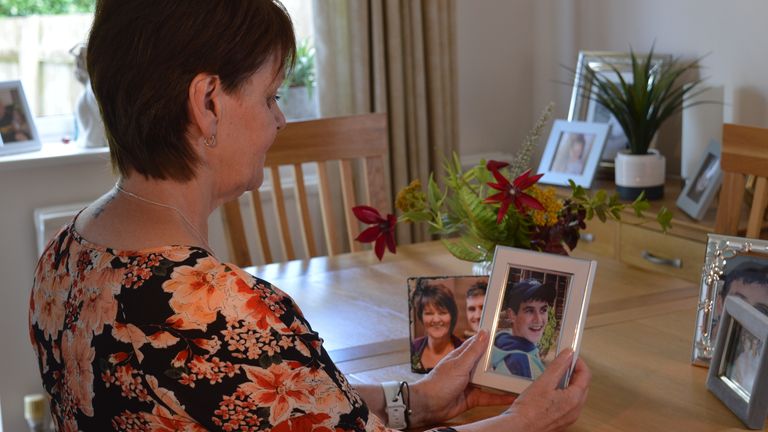Craig sits on the edge of his chair, his hands shaking as he looks blankly at the church wall.
He’s fighting a withdrawal from crack and alcohol that rattles through his body.
His eyes are empty, but you can sense the turmoil he’s fighting.
Some 20 years of addiction has left him teetering on the edge of life and death – and he knows it all too well.
“I’ve been told by a few doctors, if you don’t stop you will be dead soon. Your body can’t take much more of this.”
More and more people are dying and Craig’s lost friends along the way.
Since 2012, drug deaths in England and Wales have almost doubled, rising from 2,597 to 4,859 deaths in 2021 according to data from the Office for National Statistics.
Craig’s enveloped by his yellow hoodie which only emphasises the yellow tinge of sickness in his skin.
He’s swallowed up by the luminous fabric, he seems so small, but this is the heaviest he’s been in a long time – 15 days sober and he’s put on a stone in weight.
He went cold turkey to get accepted into a rehabilitation centre.
Spots are few and far between and local authorities often ask addicts to show they’re willing to “do the work” by getting sober, or at least significantly reducing their intake, before they get approved for rehab funding.
Over the last 10 years councils have cut funding by half in real terms according to analysis shared with Sky News from UK Addiction Treatment Centres, the UK’s largest supplier of rehabilitation services.
In 2013, 31% of the public health grant (£828m) was spent on drug and alcohol addiction services, but that’s dropped to 16% (£608m).
And when looking at drug addiction treatment services alone, funding has dropped by a third in a decade – that’s before considering the effects of inflation.
In 2013, £569m was spent on drug addiction support services; in 2023 that funding is forecast at £379m despite the need for life saving treatment being more urgent than ever.
Detox or die
Detoxing on your own can kill you but for Craig the risk is worth it.
A spot in rehab is his golden ticket to a new life, a ticket that will whisk him away from the monster that’s always on his heels.
“You’re not supposed to do it, just stop, because you can die. I were really, really ill for four days.
“I was vomiting blood and shaking uncontrollably.”
A tear rises up to his eyes, but he swallows it back down. He says he’s just been through some of the worst days of his life and the pain is palpable.
Addicts like Craig can sign up to a medical detox before rehab, but the waiting list can be months long, and once you’re clean you join the queue for rehab which can take another six months – time Craig said he doesn’t have.
“It’ll only be a matter of time before I start drinking and doing drugs again.
“Something could just trigger me and then, I’m stubborn, I’ll just go and get a can or a bottle and the spiral starts again.
“I’ve been stealing from supermarkets, it’s got that bad.”
Craig knows he’s just weeks away from getting help, but no one, including himself, knows if he’ll get there.
He’s been here before, about to get in and then back to square one all because he relapsed.
Read more:
One in five adults in England will be living with major diseases by 2040
Miscarriage care will change to tackle ‘final taboo’
Who’s responsible for the cuts?
There are thousands of people like Craig waiting for help and support workers say addiction treatment services are more stretched than ever.
The Local Government Association acknowledged “the enormous funding pressures that vital addiction services are under” but it said this is “due to cuts in funding by central government”.
In July 2021, Dame Carol Black’s report into drug treatment services said the system is “not fit for purpose” and that cuts had left services “on their knees”.
In response, the Department for Health and Social Care published its long-term drug strategy in December 2021 which pledged to spend £538m on improving addiction treatment services by the end of 2025.
So far £103m of that fund has been rolled out in April this year.
But services say it’s too little too late.
Julie Rigby, Senior Support worker at Oasis Recovery Runcorn said: “We’re seeing a general decline in funded places for people that are coming in from the local authority. Over the last few years it’s decreased by at least 50%.
“People with drug and alcohol misuse issues that are in the community are desperate, trying to get help, and they just can’t get funding to get through the door.
“People are dying to get into rehab.”
Families destroyed
Karen offered us tea as we sat down in her front room. She’s warm and welcoming but her smile can’t mask the grief hanging over her.
She told us the last year has stood still since she lost her son Kane to a heroin overdose.
Kane was fun-loving and empathetic, the type of guy that would give his last fiver to a homeless person, Karen and her son Adam said.
But Kane had suffered from an 18-year addiction to alcohol that started when he was 16 years old.
“It’s heartbreaking to see somebody you love just ruining their lives, he couldn’t help it, he couldn’t stop himself.
“He would say to me, ‘I need to go into rehab mum, I need help’.
“If he had got the help he needed, I think he could still be here today. And I think he was failed.”
In Wiltshire, where Kane lived, the local authority cut funding for addiction treatment services by £2.6m over a decade – the fifth largest cut across the country.
Kane’s brother Adam told Sky News he had been crying out for help but that the life-threatening severity of his addiction had been ignored.
“When he did try to get help he would go to the GP drunk to make sure they knew how bad it was.
“He was totally honest with them, he was up front and clearly needed help.”
Kane’s family hope fresh government funding over the next two years will mean cries for help won’t go ignored and families across the country won’t be torn apart like theirs.
